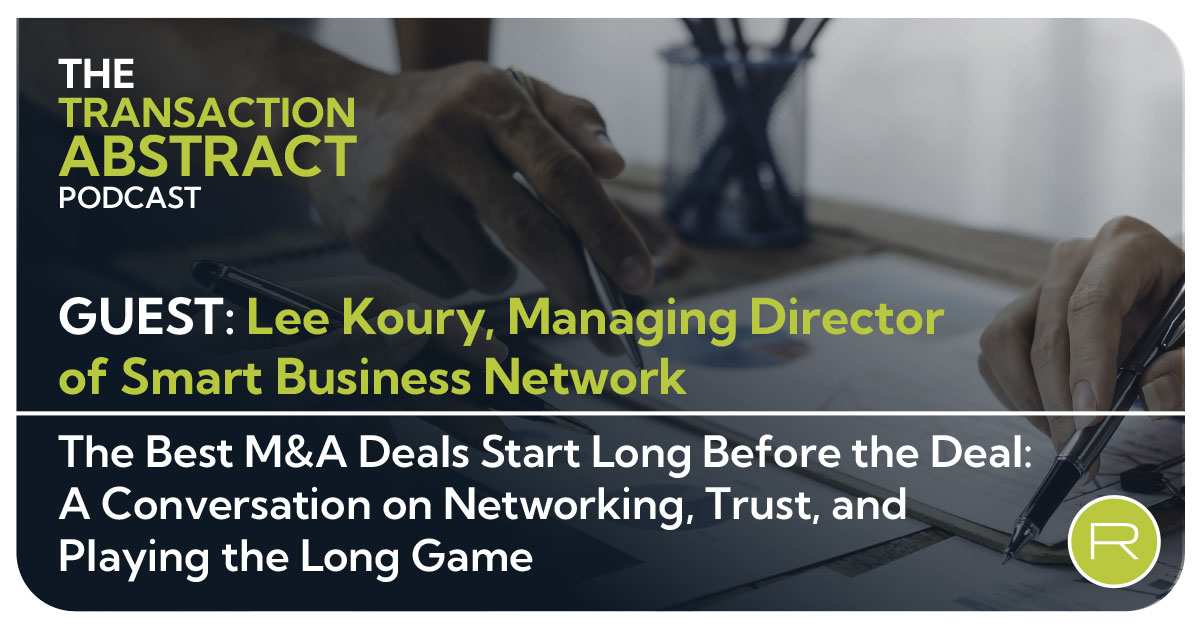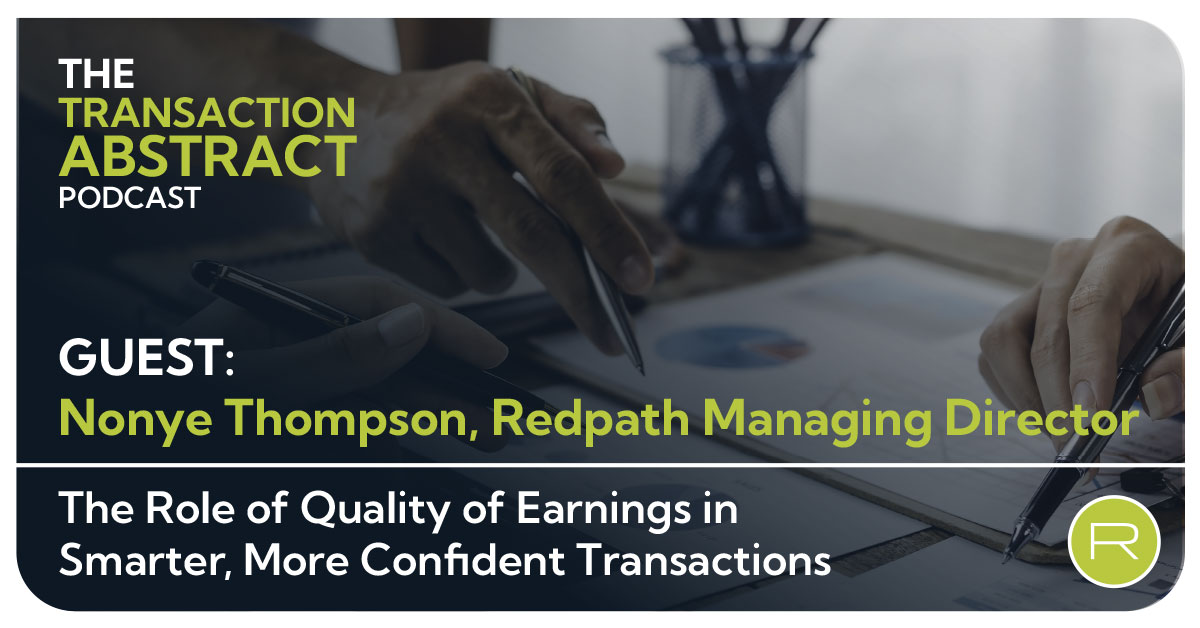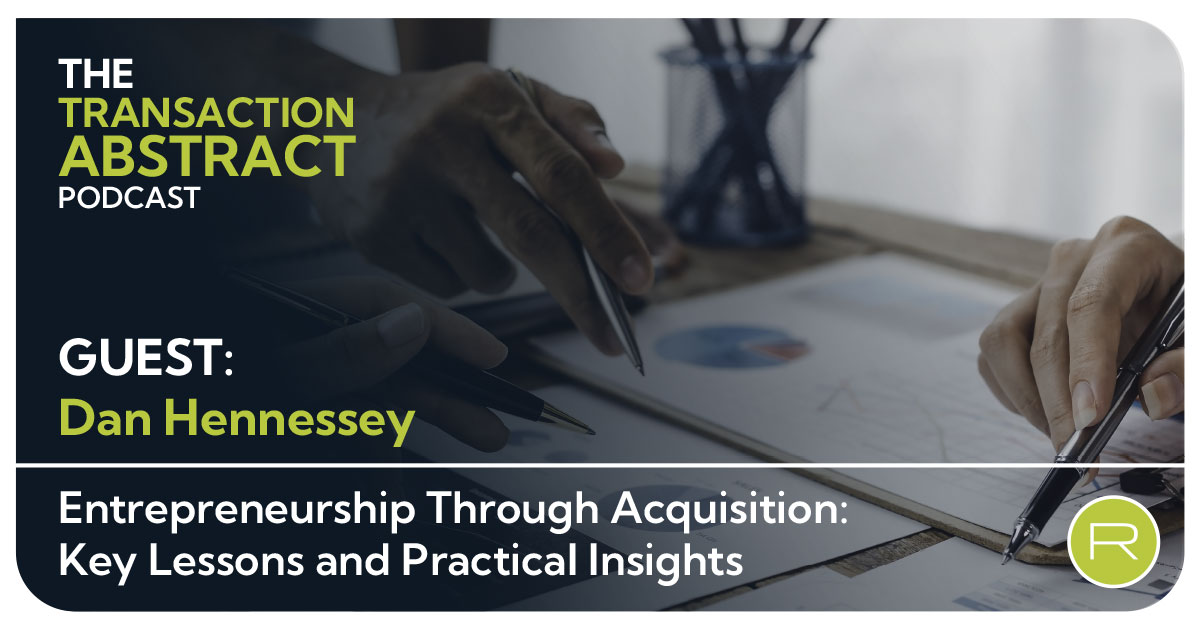The dramatic failures of Silicon Valley Bank and Signature Bank remind us that the banking and investment environment is intertwined with the overall economy. Repercussions affect more than bank customers and stockholders. So, what really happened, and how might the fallout affect potential buyers, sellers, investors, or others involved in future M&A transactions?
Joe Hellman, host of The Transaction Abstract Podcast, spoke with Anna Sabiston, Senior Vice President at Prudential Private Capital, about current economic events and their implications for M&A investment. A previous podcast guest, Sabiston is based in Minneapolis and oversees her firm’s senior debt, subordinated debt, and mezzanine investments across a wide range of companies throughout Minnesota, Iowa, and South Dakota.
Her conversation with Joe Hellman is deep and detailed, so you will want to listen to the entire podcast to understand the whole story. Here are some key takeaways.
Why Does Economic News Affect M&A?
“It was a pretty acute shock to the financial system,” notes Sabiston. “Financing markets essentially dried up overnight for at least a week, even longer for very high-quality investment grade public issuers. When you are in the M&A market, uncertainty and financing costs, as well as the ability to even obtain financing can have a pretty material impact on a process.”
Uncertainty has always affected M&A because it impacts capital markets and the rates that are available. Higher interest rates make the debt to purchase a company more expensive and the payments associated with financing will go up. This impacts the price a buyer is willing to offer.
Resource: Guide to selling a business
What Happened?
To stimulate economic growth, the Fed [Federal Reserve System] set short-term interest rates at near zero from 2009 through 2016. They also adopted a strategy called quantitative easing, purchasing mortgages and longer-term bonds. When COVID shut down the economy, the Fed responded by reducing rates and simultaneously boosting the money supply by buying more assets. The Fed’s balance sheet went from showing less than $1 trillion in assets in 2008 to almost $9 trillion during the pandemic.
When the money supply grows faster than the economy, you get inflation. Asset price inflation increased the value of equity, businesses, real estate, and other assets as borrowing costs decreased. Low-interest rates encouraged investors to choose riskier investments in alternatives, venture capital, private equity, and even cryptocurrencies and NFTs.
As a result, early stage companies including those not making money were able to borrow from banks like SVB. Sabiston explains that part of SVB’s business was looking to fund startups “based on a unicorn billion dollar plus enterprise value.” Meanwhile, increasing prices for consumer goods drove the Consumer Price Index well above the Fed’s target inflation rate of 2%. So the Fed changed course, increasing interest rates in an effort to slow inflation. Higher interest rates and reduced money supply lead to lower asset values and increased focus on less-risky investments. Venture capital began to dry up. The market value of bonds decreased.
Assets and Liabilities Out of Alignment
Banks accept customer deposits, recognizing that these funds may be transitory. Banks make money by investing these deposits, but they must retain a certain portion to pay out any customer withdrawal demands. Most of SVB’s deposits were from venture capital-based clients and far larger than the Fed’s insurance maximum. New deposits were slowing as venture capital became less available. To stay in business, SVB invested in longer-term assets such as fixed-rate bonds. That left them with inadequate liquidity. When Moody’s threatened to downgrade their credit rating, SVB attempted to boost liquidity by selling some of its bonds at a $1.7 billion dollar loss.
Word got out, and in a single day customers demanded withdrawals totaling $40 billion, 20% of SVB’s entire assets. Signature Bank, heavily invested in cryptocurrencies with uninsured deposits, suffered a similar fate.
What is in Store for M&A?
Better management of risk management, suggests Sabiston. She says there is not one institution or one policy to blame, but rather the fact that interest rates were so low for so long that risk managers became complacent.
Bank customers are switching to higher-quality, larger institutions that generate greater confidence because they are more highly regulated. Sabiston believes we will see more regulation of regional banks. And now that the Fed has spent so much to cover insured deposits at SVB and Signature Bank, they need to replenish their own coffers. That likely means higher insurance costs for banks.
The result will be stricter credit availability and higher borrowing costs.
M&A activity, which was already down significantly in the latter part of 2022, may not rebound much until later in 2023. Getting approvals from institutions will be harder, and acceptable amounts may decline as institutions look to reduce their size of hold. Private equity buyers will be more conservative. On the other hand, corporate buyers with healthy balance sheets are in a better position because they have no financing risk for M&A transactions.
Sabiston sees two types of companies coming to market–those with very high-quality defensive assets that make them attractive no matter the environment, and those with no choice but to sell, albeit at decreased valuation and less attractive terms.
Stay tuned, says Sabiston. Uncertainty is not over yet and we can expect to see more disruptions going forward.
 Redpath and Company
Redpath and Company
-1-1.jpeg)



